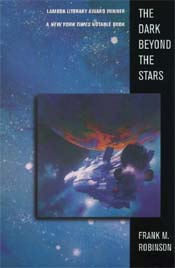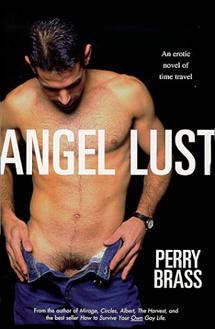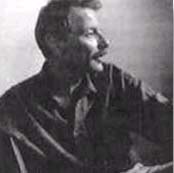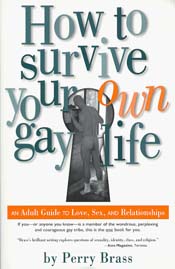 |
|
There was a plethora of writers in languages other than English who got it, often because their tongue's time had come, which meant that the Great Big Writers in Our Mother Tongue, like D.H. Lawrence, E. M. Forster, Virginia Woolfe, James Joyce, F. Scott Fitzgerald, Willa Catha, and Somerset Maugham never did. Neither did Vladimir Nabokov and, most regrettably, for any language, Marcel Proust. Proust never got it because he wrote about what used to be called simply "the subject." Namely, the love that darest not speak its name. The "unnamable vice," or what "perverts," "inverts," and "diverts" did, etc. Proust wrote about this, and so far the only writer who openly and passionately wrote about homosexuality to get the Nobel Prize was Constantine Cavafy, who wrote in Alexandrian Greek, a dialect that no one speaks. Now of course (yes, of course!), things are a bit different, and the National Book Prize has gone to openly queer writers like Dorothy Allison and Michael Cunningham; so gay and lesbian writers don't have to feel quite so closed out. Most of the time. But you still have the question, why are prizes so important to writers? They are important because it means that someone else is actually paying attention to you, and in our present "Country Without Culture," serious writers get no attention at all, except A) they get "adapted" as movies, or B) a small group of readers decides that they can turn off the TV set and still survive.
The first time it happened, I was a finalist twice in one year-in two categories yet: I had published my first novel,Mirage, and my first book of poetry, Sex-charge, in 1991. And when I found out that I had been named a finalist twice, I was delighted, though not nearly as delighted as I should have been. This had never happened to anyone else (being named a finalist twice in one year in two different categories), but I was a new name on the block and I guess word had NOT got around that I was going to be writing a lot more. Neither book won. I went to the Lammy Awards, that year in Anaheim, California, near Disneyland, and had to hold my breath twice, while my best friend, Jeff Campbell, who died three years later, held my hand, and then consoled me.
 I do remember Kent Fordyce, the book buyer for Lambda Rising in Washington telling me that he wanted to boo when another book won for Best Gay Science Fiction that year. The book, The Dark Beyond the Stars, did not have one recognizably gay character in it. It was what they called "hard core science fiction," more about hardware and robotics than human feelings (especially gay human feelings). But the gay science fiction Soviet, which has never liked my work and never will because I present myself as more of a gay fabulist than one of them, adored it.
I do remember Kent Fordyce, the book buyer for Lambda Rising in Washington telling me that he wanted to boo when another book won for Best Gay Science Fiction that year. The book, The Dark Beyond the Stars, did not have one recognizably gay character in it. It was what they called "hard core science fiction," more about hardware and robotics than human feelings (especially gay human feelings). But the gay science fiction Soviet, which has never liked my work and never will because I present myself as more of a gay fabulist than one of them, adored it.
The book was written by a very straight author, which is no problem, except that he made no bones about the fact that he was slumming with the story and had very nicely put in a few "gender-questioning" characters. (Translation: there was absolutely nothing that resembled sex in it.) It was also published by a very straight, very mainstream house that could congratulate itself on its progressivism. But the queer sci-fi people, who now refer to themselves as "Gaylaxians," were licking it like ice cream. They still do. As one of their little dictators told me, "We don't care about 'gay stories.' We care about science fiction that just happens to be gay. Give us good science fiction, boy, and we'll be happy." The only problem about that is that no one has quite been able to define "good science fiction," anymore than they've been able to define "good gay science fiction." It seems like the real criterion should be, no matter how speculative the fiction, do these characters come off as being recognizably "human," in all of the dimensions of humanity, and is the gay part of them integrated in a way that is real, unshameful, and satisfying? I have never, of course, heard that criterion discussed in any gay sci-fi setting, which for the most part is still more interested in getting a gay minor character thrown into the next big corporate "Star Wars" feature than in anything that resembles, even vaguely, a creation that expresses or expands our ideas about being gay. Of course, self-hating queers are always as thick as star dust among us, so, as I always tell them: why stay in that little ol' closet, when you can just knife yourself publicly and get your approval that way? Gay self-hatred swings from wanting to be invisible to wanting to be approved of, no matter the cost. Since we're so used to paying that cost, anyway-in constant toadying-what's the problem? On a more revelatory note: I have never considered myself a "science fiction" or "horror" writer. But like Robert Louis Stevenson or Doris Lessing or Felice Picano, I know that a great story in such a setting transcends its own material: it reaches outside the pat sci-fi or horror "audience" and appeals to the deepest level of human feelings. The fact is, I simply enjoy telling these type of big stories and my readers like the powerful feelings and conflicts that I've attached to them. I also don't shy away from sex, and the queer sci-fi community, which never seems to stop suffocating in its own prudishness, is embarrassed by that. (This embarrassment has been very detrimental to a writer like Samuel L. Delaney, who wrote science fiction and now writes some of the wildest gay "porn" in the world, but who can never present all of his cards to the Sci-Fi-arati.) All of the above kept me from being named, again, a sci-fi finalist for about six years. During that time, I was putting out books that I thought (and critics agreed) were better, but I could not be renamed a Lammy finalist. I was not going to be let into the bigger "Gay Fiction" category (where the, um, "serious" writers live and borrow poisonous little cups of Virginia Woolfe from each other). And the queer sci-fi folk were not going to let me splash in their wading pool either. But at that point, I was so busy writing that I didn't care. I also got nominated for other awards, such as a Benjamin Franklin Award and an Ippy from Independent Press Magazine, and that made me feel like I (along with the thousands of readers I had) was not completely nuts. >From time to time, I would speak with people at Lambda Book Report, which administered the awards, and they would say, very patiently, "Sorry, buddy. You haven't been named a finalist this year. Better luck next year." I also became aware that there were other writers who were in the same situation I was, and often the problem was that they were known to be more "gay" than mainstream. This makes you see, once more, how the mainstreaming of even Queer-Streaming has hit. For instance, in this world, coming from a big press beats a small press, a university press beats self-published (all the time!) and having recognition in the commercial world always beats having recognition solely in the gay one. There are exceptions, such as Jewelle Gomez, whose black lesbian vampire stories (from small Firebrand press) won Lammies for Lesbian Fiction and Lesbian Science Fiction (when there were separate categories for gay and lesbian SF/Fantasy). But there is always this Great White Hope desire for a Lammy winner who will reflect honor on the Prize by also winning mainstream prizes: thus showing that we are legitimate enough to recognize big, commercially viable talent, which reinforces the queer world by showing, "Hey! We can make money, too!" In other words: the Lambda Literary Award is not just a parochial prize aimed at rewarding people for bringing light to the gay/lesbian/ bi/ and transgendered experience. It is an award for larger presses who take a "chance" by spending money on g/l/b/t writers. (Of course, in the book world, as in the "real" one, this is all a grievous ball of wax: the Lammies, like any award, need sponsorships to survive, and the bigger presses with bigger money are in a position to do that: now that the big presses are thinning their gay book lists, the money for Lammy sponsorship is thinning out, too.) So I was shut out of the Lammies for six years, until The Harvest, my novel about cloning and the production of human transplant material, came out. I felt as if I had been holding my breath for that time, and then I was picked again as a finalist. I would not be picked as the winner-the winner was an anthology that year, which was more palatable with the mainstream of gay sci-fi marketing; but the idea that a book with new ideas in it about being gay (the two gay protagonists of The Harvest were so out of the stereotype of any gay story structure) would not win was certainly hammered in tightly.
(I moderated a panel on gay spirituality a few years ago, and several very accepted gay spiritualists (a whole new profession, I guess) told us how the gay world of bars, bath houses, cruising, etc. was totally anti-spiritual, and that by rejecting that we could get in touch with our spiritual side. I almost fell off my chair: we've gone full circle back to the old Catholic confessors, the hard-ass Freudians, etc. telling us to "grow up" and stop looking at one another in a way that stirs up lust. It was again what I called the "new 'mature' gays versus the old 'bad' queers" syndrome. I have seen it and smelled it for the last forty years, so I shouldn't exactly be shocked by it anymore.) Of course, there was no way that How to Survive would survive, at least as a Lammy winner, but as I always say, being a finalist for a prize simply means that someone will get to know about your book who didn't before. The politics of prize-making, and there are always politics, may keep you from winning-just as it almost did with David Pelletier and Jamie Salé, the Canadian skating pair at the Salt Lake City Olympics this year-but just getting there to be able to compete is a biggy-and very, very important. Last year, my book Angel Lust was again named a finalist, this time in Gay and Lesbian Sci-Fi/Horror, even though the book was more about eroticism and spirituality than anything about that category. I knew that it could not possibly win: it was way too erotic to be taken "seriously" by the hardcore sci-fi people who had, for the most part, told me that they would never take me seriously. As Felice Picano once said, we're now in the age of "gay books without dicks," and I had put way too much gonads in this one. I had also put in really sweeping human emotions-the idea being that same-sex feelings themselves transcend time and even our ability to place words or labels around them. But this idea, novel as it might be, was not something that people wanted to pay a lot of attention to. If anything, the book was about S & M (or submissive) spirituality, something that I think gay men, or whatever you want to call them, have been involved with for millennia, and a lot of readers got that. So I was happy for that.
But Warlock came out when books are much more categorized than they were when I first started publishing them twelve years ago. A lot of this is caused by publishers who now aim books directly at Barnes & Noble mega-stores. These often have either no gay/lesbian sections, or very small ones devoted only to "Gay Studies." So gay fiction gets thrown around and can end up anyplace. This means that really kinky, sexually rife books are not welcome: they might be picked up by little Junior browsing through the "General Fiction" shelf at his local mall. So, strangely enough, categories are becoming even more "defended." You're either in one, or you're just no place. We have now the "mainstream" gay novel, that is, a novel that you could find at any airport bookstore. These books come with almost no genitalia, or, for that matter excitement. But they can be picked up without any problems in the most suburban settings: you will not have to go to a "queer" bookstore to find one. There is also the slightly "gayishe" sci-fi novel, palatable and inoffensive to that audience, a type of book that was championed by China Mountain Jhang, a well written but cardboardly queer book by Maureen McHugh (it's nice, and rare, to read a sci-fi novel with enough good writing in it so that it escapes the Science Fiction ghetto and becomes simply "fiction" material). But CMZ was stuffed to nausea with internalized homophobia: the few recognizably gay characters in it are, in one way or another, sexually and emotionally immobilized; i.e., castrated. This sort of book satisfies the "happens-to-be-gay" needs of a reader who can't deal with male characters who let their sexuality rip out. It's funny that women now want to read about women who do this; so why can't queers deal with it without branding anything that does this "porn"? In the "categories" category, we also have the new plague of "gay romance novels." These follow a format of writing which women eat like peanuts, but the question is, are these books actually written for men, or for straight women who are now "liberated" enough to find mild gay eroticism as enticing as straight men find fluffy lesbian cavorting? And of course, the gay and lesbian mystery, which is keeping some publishing houses in black ink and light bulbs. Again, you have gay books which have become mainstreamable enough that the "gay" aspect of them can be vacuumed out, and no one would cry. The vast popularity of the Michael Nava or the Joseph Hansen books proved this: Hansen's hero, Dave Brandsteder (hope I have that name right) is more neutered than sexual.
 This keeps the pot boiling, but when you compare this hero to, say, Elmore Leonard's juicier characters, Hansen's come off like fuddy-duddies. In the one Michael Nava book I read, hero Henry Rios cannot achieve anything that resembles emotional/sexual satisfaction. When you compare this to the red-bloodedness of Lawrence Block, whose detective hero is overweight, alcoholic, and gets laid all the time, you wonder why the "just-happens-to-be-gay" thing means we get our nuts chopped off, too.
This keeps the pot boiling, but when you compare this hero to, say, Elmore Leonard's juicier characters, Hansen's come off like fuddy-duddies. In the one Michael Nava book I read, hero Henry Rios cannot achieve anything that resembles emotional/sexual satisfaction. When you compare this to the red-bloodedness of Lawrence Block, whose detective hero is overweight, alcoholic, and gets laid all the time, you wonder why the "just-happens-to-be-gay" thing means we get our nuts chopped off, too.
This brings me to the big question: what happens when you are writing books that are simply good books that are "inexcusably" gay? I mean, I can't vacuum clean out the queer parts and say, "Wow, now we got a nice book here!" My readers don't feel that way: they like what I have done. And the gay bookstores don't feel that way-I know I've been paying a good part of their rent for a while. But the "literati," whoever they are, still have this feeling that I have to be excused for writing what I write. That if I just understood the world differently, things would be better for me. On a certain level, this does not bother me. As Richard LaBonte said to me, "Your books will sell anyway, because people like them." But I wish that critically, people could see that there are many facets to what I am saying, instead of trying to stuff me into a category (while tsk-tsking the "porno" parts) that I can't possibly stay in. The main target and destination of this is the always-desired "happens-to-be-gay" Seal-of-Approval. We still want books, movies, records, etc. where the gay part is tangential, instead of unapologetically organic; the idea being that as an adjective "gay" still means sleazy, talentless, tainted, marginal, unacceptable, shallow, and without any real benefit. "Gay" is still to the book world, then, what the term "Jew" was to the culturati when the term "Jewish" meant one word: "schlock." It was only when Jewish writers like J. D. Salinger and Philip Roth became unapologetically Jewish that Jewish writing became unapologetically interesting. It was then that the mainstream (i.e., Christian establishment) could accept writers like Isaac Bashevis Singer and Cynthia Ozick and say, "Wow! This world is totally human and you don't have to be Jewish to understand or enjoy it." Since I grew up Southern and Jewish (and very much gay, too), I understand what it's like to have come from two cultures that had to be constantly self-abnegating. Jews were supposed to be stuck in the Borscht Belt; Southerners stuck in Gone with the Wind; and queers were not even allowed to be stuck: they were totally invisible. Somerset Maugham put it this way almost a century ago, when he described homosexual artists as diving down to the bottom of the human heart and "coming up only with a piece of tinsel." That was all we were supposed to find, because we were not going to be allowed to grow up. Maugham sadly put himself in that category, and even admitted that as much as he tried to disavow his "queerness," he could not. "I had thought that I was one quarter queer and three-quarters normal. But I was not. I was three-quarters queer and one quarter normal," he said in a now-famous quote. Today, Maugham is one of the few writers from his period who is constantly re-published, reread, refilmed, and re-produced. His own multifacetedness is very hard to pin down-and frankly, I don't think he would ever care if it was. Perry Brass's newest novel is WARLOCK, A Novel of Possession , that deals with the interesting intersection of business and evil. His "domestic partnership" is not underwritten by any of the Fortune 500. He can be reached through his website www.perrybrass.com. For more information on WARLOCK, go to http://www.amazon.com/exec/obidos/ASIN/1892149036/107-8161877-7587701 Telephone: 1 (800) 365-2401. |


 Author Perry Brass: Seeking his first Lambda Literary Award
Author Perry Brass: Seeking his first Lambda Literary Award  My next book to be a finalist was How to Survive Your Own Gay Life, a non-fiction book that was placed in the "Gay and Lesbian Religion and Spirituality Category." This was a new category, and it was interesting for me to be in it, since I am not only not religious, but barely qualify as being "spiritual" in that I don't believe that spirituality, especially the basic gay approach to it, is limited to goodness, niceness, or even believing.
My next book to be a finalist was How to Survive Your Own Gay Life, a non-fiction book that was placed in the "Gay and Lesbian Religion and Spirituality Category." This was a new category, and it was interesting for me to be in it, since I am not only not religious, but barely qualify as being "spiritual" in that I don't believe that spirituality, especially the basic gay approach to it, is limited to goodness, niceness, or even believing.
 This year, I came out with Warlock, A Novel of Possession, which is the best book I think I've written so far. The book did not come out until November of 2001, which was not good: there really wasn't enough time to get the word of the book out, but since I publish with a tiny house owned by my partner, I can't always negotiate the time factor. Timing is important in publishing. I know that. Mirage came out at a time when the sort of book that it was-independent, very sexual, and dealing with AIDS politics as well as "gay themes"-was welcomed. People wanted that book, and I was lucky enough to write it.
This year, I came out with Warlock, A Novel of Possession, which is the best book I think I've written so far. The book did not come out until November of 2001, which was not good: there really wasn't enough time to get the word of the book out, but since I publish with a tiny house owned by my partner, I can't always negotiate the time factor. Timing is important in publishing. I know that. Mirage came out at a time when the sort of book that it was-independent, very sexual, and dealing with AIDS politics as well as "gay themes"-was welcomed. People wanted that book, and I was lucky enough to write it.